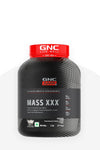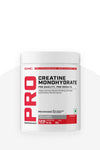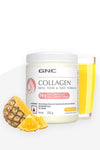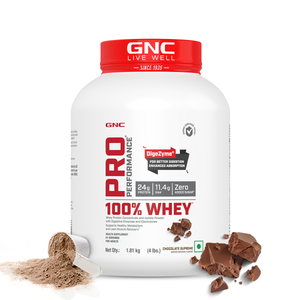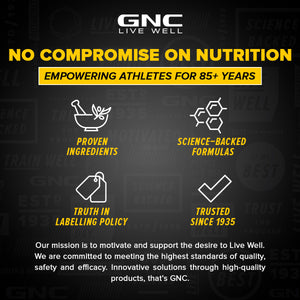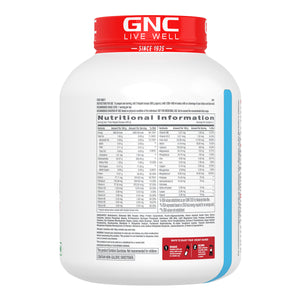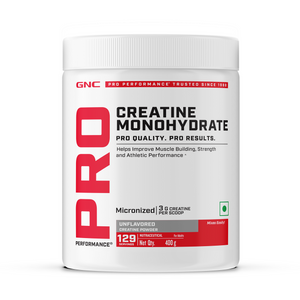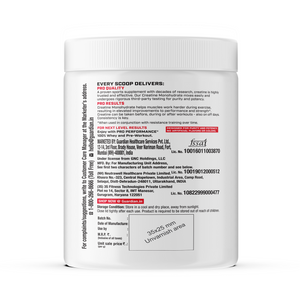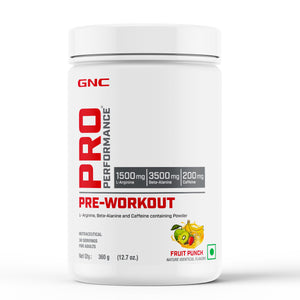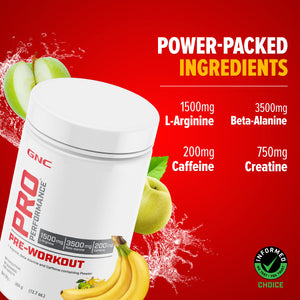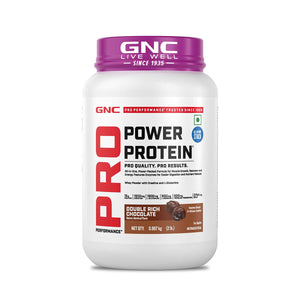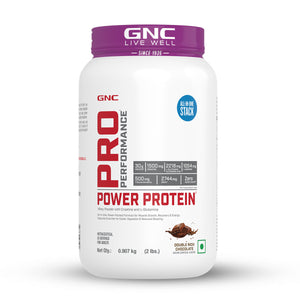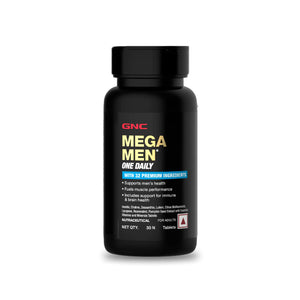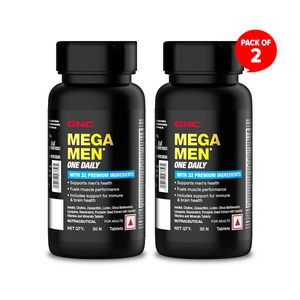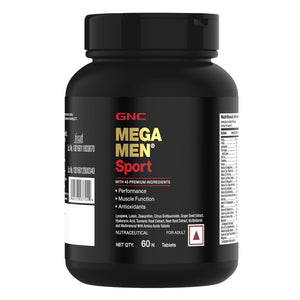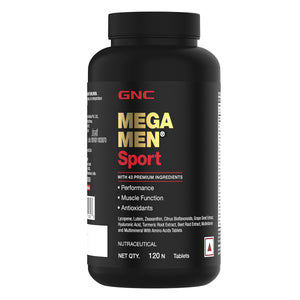
Every September, National Nutrition Month is celebrated to raise awareness about the vital role nutrition plays in health and overall well-being.
We, at GNC, believe that natural foods are the ideal way to meet your nutritional requirements, and should be included regularly in one’s diet. However, due to the changing lifestyles, busy schedules, poor quality food intake, lack of physical exercise etc, the majority of us face nutritional deficiencies. Nutritional supplements hence can help us bridge the gap between the requirements and deficiencies.
As we celebrate the #NationalNutritionMonth, we intend to bring awareness about various vital nutrients one should include in their daily diet, depending upon the varying needs. So, keep looking for this space as we uncover it for you the whole month.
Now, all of us are aware of multivitamins and with the onset of a pandemic, the need for multivitamins to include in our diet is well known. However, they seldom know about important vitamins and minerals to look for in a multivitamin for it to benefit us fully.
But with so many vitamins and mineral combos, how do we know exactly what to look for when shopping for a multivitamin? We did a little literature research and shortlisted these ingredients which should be there in your multivitamins.
Usually, you find Vitamin C, calcium, magnesium, and potassium which are well-known nutrients, but a good multivitamin should also include:
Vitamin D2 or D3:
For our bodies to absorb calcium, vitamin D is needed to keep our bones and teeth strong, promote bone growth, and promote bone growth in our children. Every day, adults need 600 International Units (IU) of vitamin D. Sunlight is one of the most effective ways for getting vitamin D into your body. Even so, skipping workouts or working from home due to a hectic schedule may hamper your daily vitamin D intake.
Moreover, it is difficult to obtain enough vitamin D with diet alone since there aren’t a lot of food choices that contain adequate amounts of vitamin D. Vitamin D deficiency is common among Indian populations, with prevalence rates ranging from 70% to 100%. Dairy products such as milk are rarely fortified with vitamin D in India.
Vitamin B12:
Approximately 47% of Indians lack enough vitamin B12 (also known as cobalamin). Vitamin B12 plays an important role in red blood cell production, brain health, and DNA synthesis. In the adult population, the recommended value is 2.5 mcg, however, it is difficult to meet this requirement since most Indians follow vegetarian or vegan diets. Because of this, Vitamin B12 should be included in a multivitamin.
Iron:
An estimated 52% of Indian women of reproductive age are anaemic because it is classified as a severe public health problem. Anaemia is common in India due to the local vegetarian diet, which has a high iron deficiency ratio. Fatigue, pregnancy complications, and heart problems are all symptoms of iron deficiency anaemia. The most common cause of anaemia is iron deficiency, but it is rarely the only cause of the condition. Thus a multivitamin must contain iron, folic acid, vitamin C, and b complex to improve an individual’s iron content significantly. These nutrients work together to help improve haemoglobin levels and combat anaemia.
Zinc:
As world carbon dioxide levels rise, zinc deficiency in crops and humans increases. Recent studies report inadequate zinc intake has been accruing in India for decades, leaving millions of people deficient. Zinc is a nutrient found in every cell in your body and is essential to your health. Zinc is also important to wound healing, immunity building and your sense of taste and smell in general, women should consume 14.5 milligrams (mg) of zinc each day, while adult men should consume 17 mg of zinc daily.
Vitamin K2 – 7:
Two different types of Vitamin K are present in the body – Vitamins K1 and K2. It is rare to be deficient in Vitamin K1, but Vitamin K2 deficiency is quite common since it is primarily found in the organ meat. Clinical studies have shown that the MK-7 form of vitamin K has bone-building properties and helps in blood coagulation. Vitamin K supplementation was found to delay postmenopausal bone loss. Combining high doses of Vitamin K2 (45-90 mg/day) with vitamin D3 (320 IU/day) and calcium (500 mg/day) reduced femoral neck bone loss by 35 to 40% in postmenopausal women aged 50 to 60 years. Therefore, a critical nutrient that is seldom mentioned.
Lutein and Zeaxanthin:
Nutrition is critical to maintaining healthy eyes for the rest of your life. You may not be familiar with the names of two very important nutritional substances for your eyes: lutein and zeaxanthin. In a study published in Nutrition & Metabolism, researchers found a nutritional supplement containing lutein, and zeaxanthin increased the macular pigment in eyes of most of the subjects.
Another study showed supplementing with Lutein and zeaxanthin can significantly improve macular pigment optical density, visual performance and indicators of excessive screen use, including eye strain and fatigue and headache frequency. Sleep quality also improved significantly.
Antioxidants:
You may need antioxidants in your diet if you want to prevent diseases such as heart disease, cancer and others. They scavenge free radicals and boost the immune system to prevent inflammation. As a whole, antioxidants (Vitamin C, E, A, Selenium, Beta carotene, etc.) are known to protect against cancer, heart disease, or other chronic diseases.
The best time to take a multivitamin
A multivitamin is generally safe to take at any time during the day. It can minimize stomach discomfort and enhance absorption, however, if taken with food.
Why Choose GNC Multivitamins?
• The multivitamin contains ingredients with close to 100% of the daily value of most of them, so you’ll meet your requirements and avoid toxicity.
• Caters to the needs of people of all ages and genders. The need for iron is greater in premenopausal women, while calcium, vitamin D, and B6 are higher in older people.
• GNC offers time-released formulas for the gradual release of important antioxidants throughout the day.
• Potencies are designed to promote optimal health, not just to meet minimum requirements.




